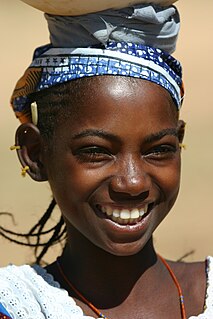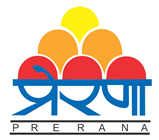Related Research Articles

Sexual slavery and sexual exploitation is an attachment of any ownership right over one or more people with the intent of coercing or otherwise forcing them to engage in sexual activities. This includes forced labor, reducing a person to a servile status and sex trafficking persons, such as the sexual trafficking of children.
Child sex tourism (CST) is tourism for the purpose of engaging in the prostitution of children, which is commercially facilitated child sexual abuse. The definition of child in the United Nations Convention on the Rights of the Child is "every human being below the age of 18 years". Child sex tourism results in both mental and physical consequences for the exploited children, which may include sexually transmitted infections, "drug addiction, pregnancy, malnutrition, social ostracism, and death", according to the State Department of the United States. Child sex tourism, part of the multibillion-dollar global sex tourism industry, is a form of child prostitution within the wider issue of commercial sexual exploitation of children. Child sex tourism victimizes approximately 2 million children around the world. The children who perform as prostitutes in the child sex tourism trade often have been lured or abducted into sexual slavery.
Child marriage is a marriage or similar union, formal or informal, between a child under a certain age – typically age 18 – and an adult or another child. The vast majority of child marriages are between a girl and a man, and are rooted in gender inequality.

Prostitution in the Netherlands is legal and regulated. Operating a brothel is also legal. De Wallen, the largest and best-known Red-light district in Amsterdam, is a destination for international sex tourism. From 1 January 2022, a customer will be punished if they purchase a sexual service from a sex worker of whom they know or have serious reason to suspect that there is coercion, exploitation or human trafficking.

Sex trafficking is human trafficking for the purpose of sexual exploitation. It has been called a form of modern slavery because of the way victims are forced into sexual acts, usually non-consensually, in a form of sexual slavery. Perpetrators of the crime are called sex traffickers or pimps—people who manipulate victims to engage in various forms of commercial sex with paying customers. Sex traffickers use force, fraud, and coercion as they recruit, transport, and provide their victims as prostitutes. Sometimes victims are brought into a situation of dependency on their trafficker(s), financially or emotionally. Every aspect of sex trafficking is considered a crime, from acquisition to transportation and exploitation of victims. This includes any sexual exploitation of adults or minors, including child sex tourism (CST) and domestic minor sex trafficking (DMST).
Forced prostitution, also known as involuntary prostitution or compulsory prostitution, is prostitution or sexual slavery that takes place as a result of coercion by a third party. The terms "forced prostitution" or "enforced prostitution" appear in international and humanitarian conventions, such as the Rome Statute of the International Criminal Court, but have been inconsistently applied. "Forced prostitution" refers to conditions of control over a person who is coerced by another to engage in sexual activity.

Human rights are codified in the Dutch constitution. Together with other European states, the Netherlands is often at or near the head in international civil liberties and political rights rankings. Per year there are about 6,000 victims of and 100 convictions for human trafficking. Despite this, the Netherlands is considered to have one of the best human rights records in the world.

Surveys of victims of crime have been undertaken in many cities and countries, using a common methodology to aid comparability, and have generally included questions on sexual violence. The United Nations has conducted extensive surveys to determine the level of sexual violence in different societies. According to these studies, the percentage of women reporting having been a victim of sexual assault ranges from less than 2% in places such as La Paz, Bolivia (1.4%), Gaborone, Botswana (0.8%), Beijing, China (1.6%), and Manila, Philippines (0.3%), to 5% or more in Istanbul, Turkey (6.0%), Buenos Aires, Argentina (5.8%), Rio de Janeiro, Brazil (8.0%), and Bogota, Colombia (5.0%).

Human trafficking is the trade of humans for the purpose of forced labour, sexual slavery, or commercial sexual exploitation for the trafficker or others. This may encompass providing a spouse in the context of forced marriage, or the extraction of organs or tissues, including for surrogacy and ova removal. Human trafficking can occur within a country or trans-nationally. Human trafficking is a crime against the person because of the violation of the victim's rights of movement through coercion and because of their commercial exploitation. Human trafficking is the trade in people, especially women and children, and does not necessarily involve the movement of the person from one place to another.

The status and social roles of women in Mali have been formed by the complex interplay of a variety of traditions in ethnic communities, the rise and fall of the great Sahelien states, French colonial rule, independence, urbanisation, and postcolonial conflict and progress. Forming just less than half Mali's population, Malian women have sometimes been the center of matrilineal societies, but have always been crucial to the economic and social structure of this largely rural, agricultural society.
According to the U.S. Department of State, human trafficking in the Netherlands is a problem which affects particularly women and girls, who are forced to work in the sex industry. In the year of 2009 there were 909 registered victims of human trafficking. U.S. State Department's Office to Monitor and Combat Trafficking in Persons placed the country in "Tier 1" in 2017.
The Democratic Republic of the Congo (DRC) is a source and destination country for men, women, and children subjected to trafficking in persons, specifically conditions of forced labor and forced prostitution. The majority of this trafficking is internal, and much of it is perpetrated by armed groups and government forces outside government control within the DRC's unstable eastern provinces.
Egypt is a source, transit, and destination country for women and children who are subjected to trafficking in persons, specifically forced labor and forced prostitution.

Prerana is a non-governmental organization (NGO) that works in the red-light districts of Mumbai, India to protect children vulnerable to commercial sexual exploitation and trafficking. It was established in 1986.
H.J. (Herman) Bolhaar has been a National Rapporteur on trafficking in persons, especially in women and children, in Netherlands since 1 February 2018. Bolhaar succeeded Corinne Dettmeijer, who was retired as a National Rapporteur on Human trafficking in 15 November 2017.
C.E. (Corinne) Dettmeijer-Vermeulen is a Dutch lawyer. She was Dutch National Rapporteur on Trafficking in Human Beings and Sexual Violence against Children, in Netherlands from 1 January 2006 to 15 November 2017. Dettmeijer succeeded Anna Korvinus, who was appointed as the first National Rapporteur on 1 April 2000, and was succeeded by Herman Bolhaar herself in 2017.
Anna Gerardina (Dien) Korvinus was appointed in 2000 as the first (Dutch) National Rapporteur on Human trafficking.

The status of women in Zambia has improved in recent years. Among other things, the maternal mortality rate has dropped and the National Assembly of Zambia has enacted multiple policies aimed at decreasing violence against women. However, progress is still needed. Most women have limited access to reproductive healthcare, and the total number of women infected with HIV in the country continues to rise. Moreover, violence against women in Zambia remains common. Child marriage rates in Zambia are some of the highest in the world, and women continue to experience high levels of physical and sexual violence.
Sex trafficking in China is human trafficking for the purpose of sexual exploitation and slavery that occurs in the People's Republic of China. China, the world's most populous country, has the second highest number of human trafficking victims in the world. It is a country of origin, destination, and transit for sexually trafficked persons.

Cybersex trafficking, live streaming sexual abuse, webcam sex tourism/abuse or ICTs -facilitated sexual exploitation is a cybercrime involving sex trafficking and the live streaming of coerced sexual acts and/or rape on webcam.
References
- ↑ Margaret Melrose; Jenny Pearce (2013). Critical Perspectives on Child Sexual Exploitation and Related Trafficking. Palgrave Macmillan. p. 151. ISBN 9781137294104.
- ↑ Dettmeijer, Corinne. "About". dutchrapporteur.nl/. Dutch National Rapporteur. Retrieved 8 January 2015.
- ↑ Dettmeijer, Corinne. "Reports". dutchrapporteur.nl/. Dutch National Rapporteur. Retrieved 8 January 2015.
- ↑ "National Rapporteur concerned about Syrian child brides and Roma children". National Rapporteur on Trafficking in Human Beings and Sexual Violence against Children. Archived from the original on 9 May 2016. Retrieved 22 April 2016.
child marriages occur in the Netherlands, drawing attention to the Syrian child brides who travel from Syria, often with an adult male. Between September 2015 and January 2016 around 60 child brides entered the Netherlands.